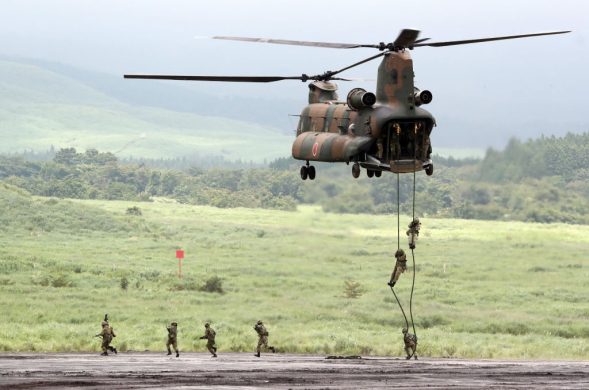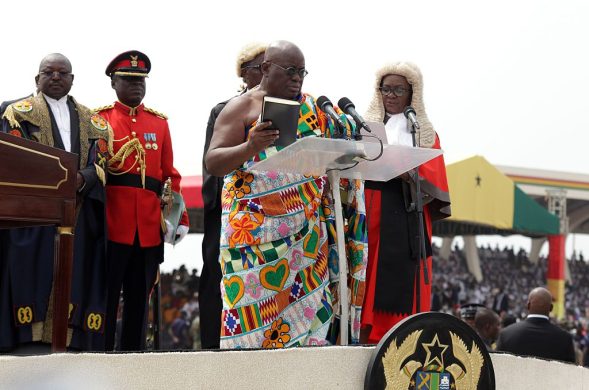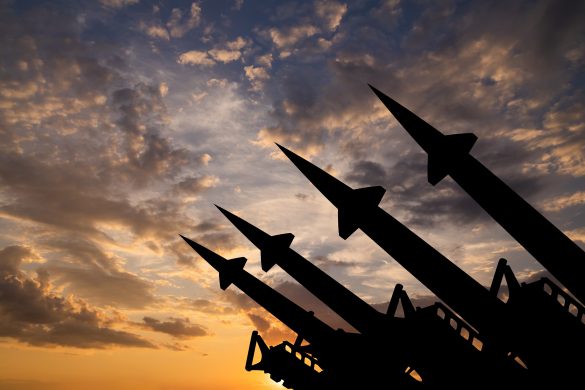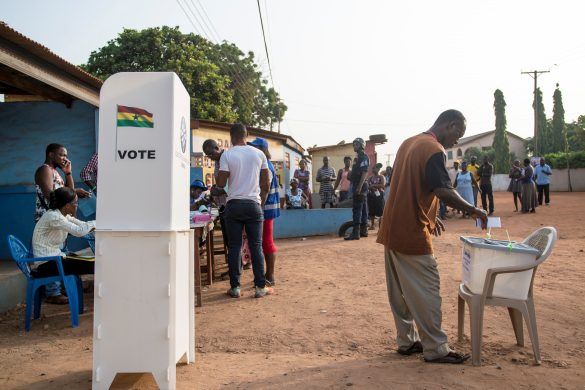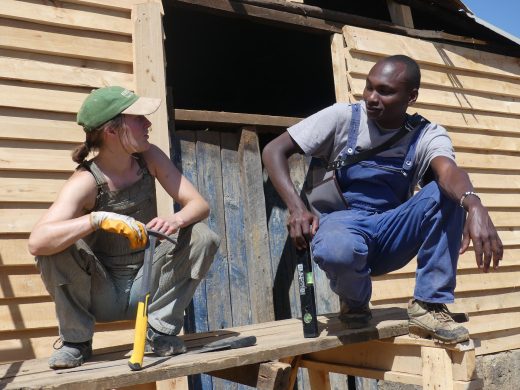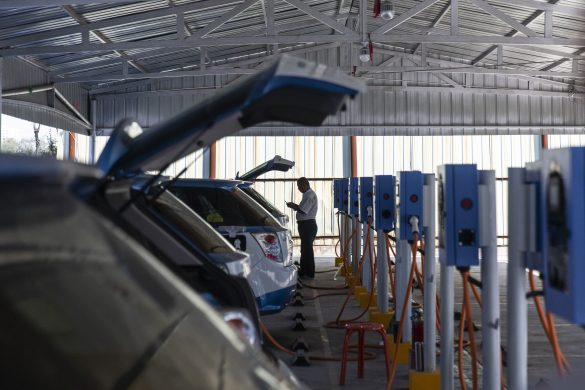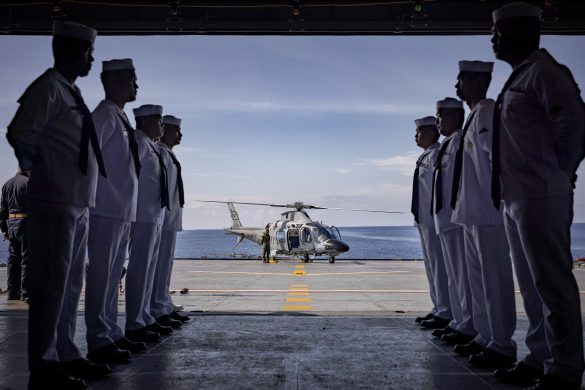Kommentar af Adams Bodomo
Kinas genkomst på den internationale scene og kæmpelandets stigende indflydelse rundt om i verden er omstridt. Kinesiske lån, Kinas relationer til regeringen i Accra og ulovlig minedrift har været en varm kartoffel i valgkampen i Ghana.
In Ghana, arguably Africa’s most democratic nation, presidential elections are often very tight. China has become an important talking point in the hotly-contested presidential election campaign, where voting took place on December 7.
The most heated issue involving China is illegal mining, with opposition politicians continually interrogating the sitting NDC government on the issue.
There is a perception that those who are supposed to be protecting the wellbeing of local Ghanaians cannot resist bribes from the Chinese, thus allowing illegal companies to practice surface mining at the expense of powerless villagers.
The re-emergence of China as a world power has led to controversy surrounding its increasing influence in many regions of the world.
The actions of China as part of this growing dominance have become in many cases a source of internal political conflict and argumentation among the different political groupings within polities.
This effect is even more marked in cases of impending elections, as illustrated by the prominent part China played in the third US presidential debate this year.
China has in a little over a decade become the largest investing and trading partner in Africa, and the country is increasingly featuring in African election discourses, a notable example being Zambia’s President Michael Sata.
Although his explicit anti-Chinese rhetoric was toned down in his successful 2011 election campaign, Sata’s previous campaigns were dominated by threats to throw Chinese “infestors” out of the country.
While such threats have never been acted upon, perhaps because of the dominant part that China plays in Zambia’s economy, they do illustrate the prominence of China in Zambia’s politics.
The Ghanaian election
In Ghana, arguably Africa’s most democratic nation, presidential elections often end in nail-biting finishes, sometimes requiring even a third round of voting.
And this time China has become an important talking point.
While unlikely to cause as much political heat as in Zambia, China is a divisive topic between the two main presidential candidates: incumbent John Dramani Mahama of the National Democratic Congress (NDC) and Nana Akufo-Addo of the main opposition New Patriotic Party (NPP).
One main issue in this debate regards how Ghana can best benefit from its links with China.
In the first half of this year, for example, Ghana negotiated a stunning three billion US dollar loan from China to invest in its nascent oil industry. The main parties disagree, however, over how to make optimal use of the facility without too much Chinese interference.
Before the loan was granted, it had to be approved by Ghana’s parliament and already there were opposition charges that the sitting NDC government is auctioning Ghanaian resources to China through unfavourable loan terms.
The pro-NPP Alliance for Accountable Government (AFAG) also alleged that Huawei, the Chinese telecommunications company, is consorting with the NDC government to give them political advantage.
AFAG claims Huawei managed to secure 43 million dollar in tax exemption (skattefrihed) in return for the contributions it made to the NDC government.
Illegal mining
Læs videre på
http://www.naiforum.org/2012/12/ghanas-presidential-election
Professor Adams Bodomo er ghaneser, men nu direktør for “African Studies Programme” på University of Hong Kong.
Artiklen optræder i seneste nyhedsbrev mandag fra Nordiska Afrikainstitutet i Uppsala i Sverige


